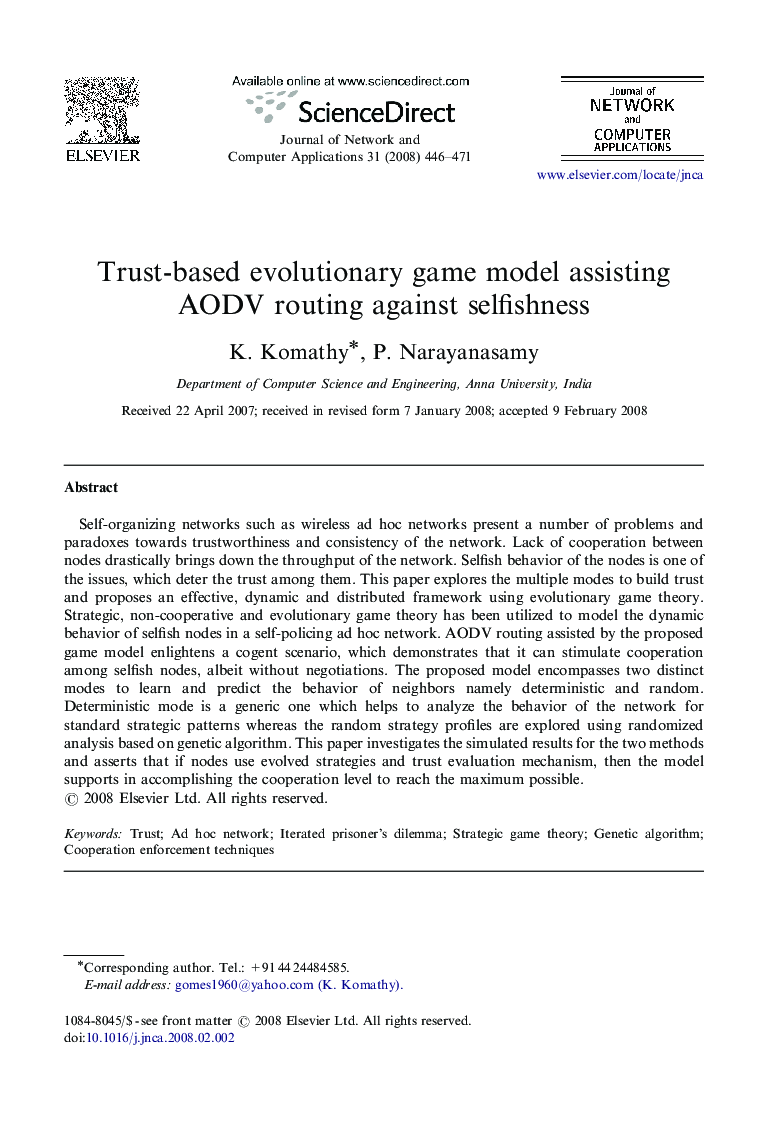| Article ID | Journal | Published Year | Pages | File Type |
|---|---|---|---|---|
| 460313 | Journal of Network and Computer Applications | 2008 | 26 Pages |
Self-organizing networks such as wireless ad hoc networks present a number of problems and paradoxes towards trustworthiness and consistency of the network. Lack of cooperation between nodes drastically brings down the throughput of the network. Selfish behavior of the nodes is one of the issues, which deter the trust among them. This paper explores the multiple modes to build trust and proposes an effective, dynamic and distributed framework using evolutionary game theory. Strategic, non-cooperative and evolutionary game theory has been utilized to model the dynamic behavior of selfish nodes in a self-policing ad hoc network. AODV routing assisted by the proposed game model enlightens a cogent scenario, which demonstrates that it can stimulate cooperation among selfish nodes, albeit without negotiations. The proposed model encompasses two distinct modes to learn and predict the behavior of neighbors namely deterministic and random. Deterministic mode is a generic one which helps to analyze the behavior of the network for standard strategic patterns whereas the random strategy profiles are explored using randomized analysis based on genetic algorithm. This paper investigates the simulated results for the two methods and asserts that if nodes use evolved strategies and trust evaluation mechanism, then the model supports in accomplishing the cooperation level to reach the maximum possible.
